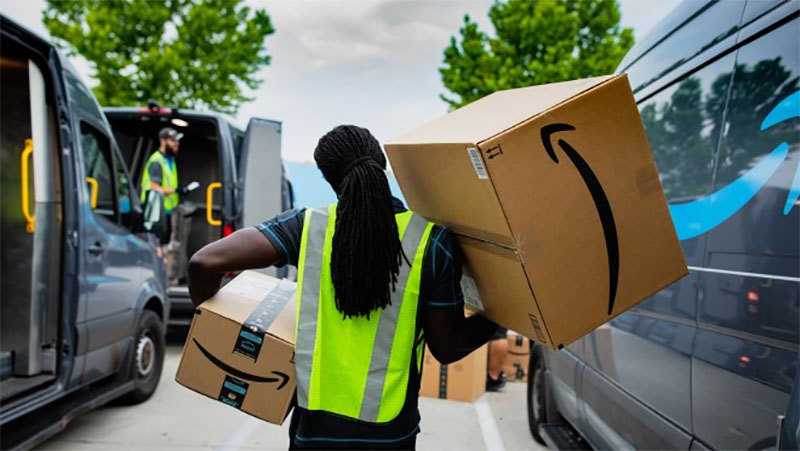Amazon Targetted With Employee Rights Claim For UK Drivers

After Uber decision, another legal action is launched that could impact the gig economy with Amazon drivers seeking employee rights
Amazon looks to be the next target for legal action in the UK, concerning the rights of workers in today’s gig economy.
Thousands of drivers in the UK delivering items for Amazon, should receive normal staff entitlements, law firm Leigh Day has claimed.
Leigh Day believes that at least 3,000 people making deliveries via ‘Delivery Service Partners’ (DSPs) are classified as self-employed, “so they don’t benefit from employees’ rights such as holiday pay, national minimum wage, and an employment contract.”

Amazon allegations
To this end, Leigh Day has launched an employee rights claim against Amazon on behalf of drivers and believes that Amazon could owe drivers as much as £140m in compensation.
Leigh Day alleges that, because of the way Amazon dictates drivers work and how they fit into Amazon’s business, drivers are entitled to these rights.
Drivers working for Amazon have apparently told the law firm how they are given estimated timings between deliveries via an app – timings which they have to meet.
Drivers also described how they are not able to bring parcels back to the depot so must use extra fuel to redeliver at the end of the day. This combined with charges for van rental, fuel, and insurance can leave them with very little earnings, it is alleged.
And it should be noted that Amazon is not the only firm being targetted.
Leigh Day said it is bringing similar claims against Uber, Addison Lee, delivery company Stuart and used vehicle marketplace BCA.
“The work is horrendous because Amazon control everything you do,” delivery driver Bill Lightfoot, whose name has been changed to protect his identity, is quoted as saying. “There were times I was out on delivery, and I’d stop for a few minutes, and they’d ring up and ask why I was parked up.”
“The money I was earning wasn’t anywhere close to covering my rent and bills,” he reportedly added. “In one week, I worked 36 hours over four days and I should have earned £464 but they gave me £2.74. It doesn’t sound believable but it’s true.”
“I was very unhappy delivering for them,” he added. “Effectively I was paying them to do their deliveries, rather than the other way around.”
Disgraceful behaviour?
“From what we have heard from our clients it appears that Amazon is short-changing drivers making deliveries on their behalf,” Kate Robinson, a solicitor in the employment team at Leigh Day, said.
“This is disgraceful behaviour from a company that makes billions of pounds a year,” said Robinson. “Drivers delivering for Amazon have to work set shifts and book time off, yet Amazon claim they are self-employed.”
“Paying out compensation of £140m sounds like a large bill to foot, but for a company that turned a profit of £5.8bn in the first three months of 2021, it’s a drop in the ocean,” said Robinson. “For drivers on the other hand, earning at least National Minimum Wage, getting holiday pay and being under a proper employment contract could be life changing.”
“It’s time for Amazon to stop putting profit above people and give delivery drivers the employment rights they deserve,” she said.
Amazon however says that drivers are compensated fairly.
“We are committed to ensuring these drivers are fairly compensated by the delivery companies they work with and are treated with respect, and this is reflected by the positive feedback we hear from drivers every day,” Amazon was quoted by Reuters as saying in a statement.
Gig economy
This latest legal action could result in another shake-up of the so called gig economy, and the rights of workers.
In February the European Commission signalled its intention to begin gathering views on the issue of employment rights for those operating in the ‘gig economy’, via a public consultation.
That came just a week after a landmark ruling in the United Kingdom in the same month.
The Supreme Court in London ruled that ride-hailing firm Uber now has to classify its drivers as workers, rather than self-employed or freelance people.
That ruling ruling meant tens of thousands of Uber drivers in the UK are now entitled to minimum wage and even holiday pay.